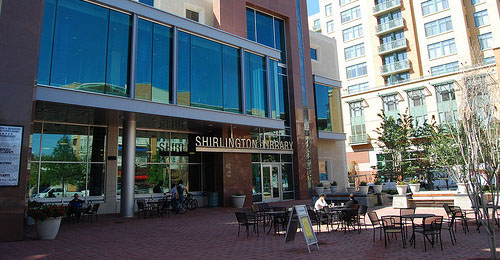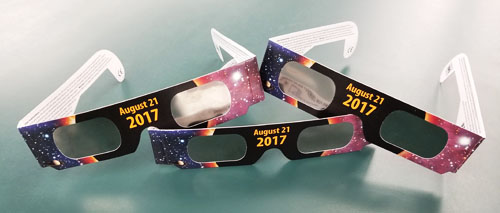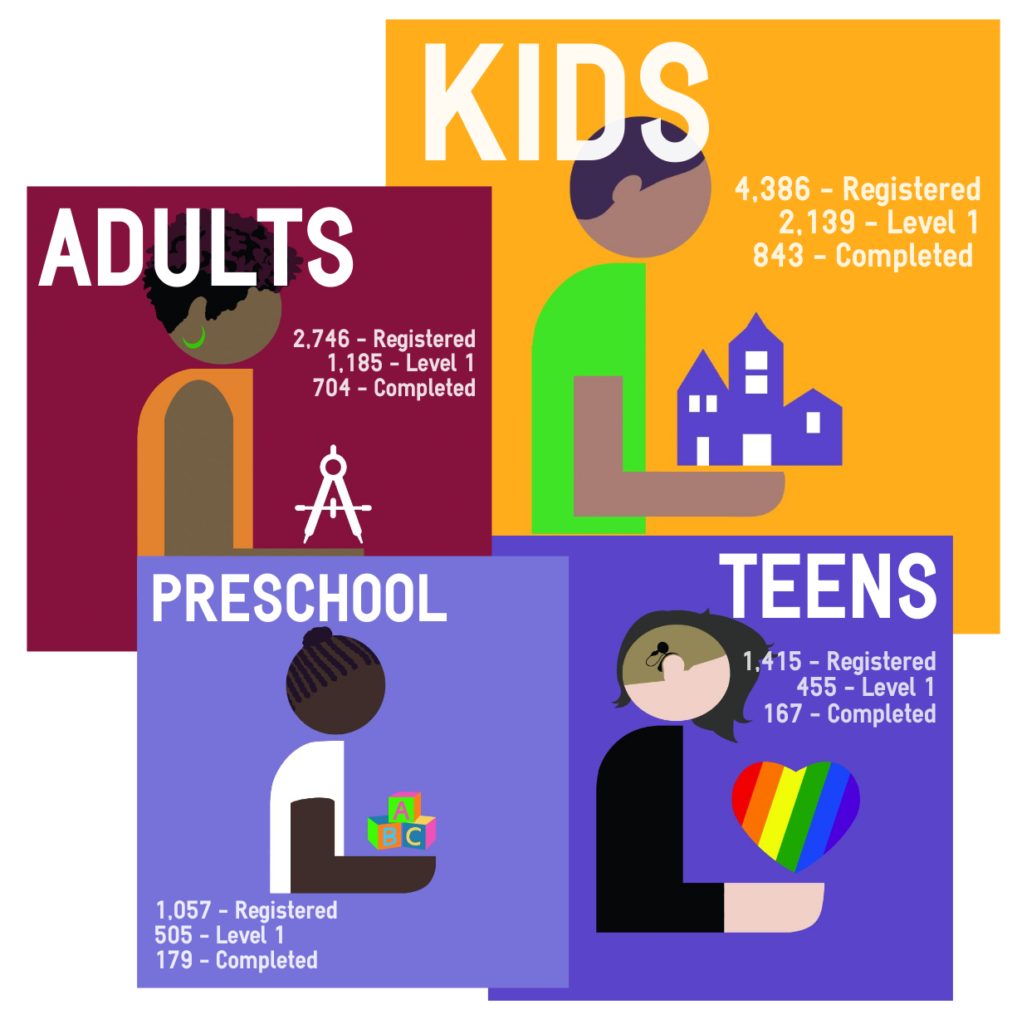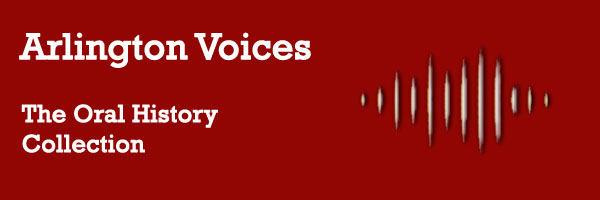
The Center for Local History hosts a diverse collection of Oral History interviews with Latino and Hispanic narrators, covering the cultural, economic, and political aspects of life in and before Arlington.
While Latino and Hispanic people have been a part of this region’s history since long before 1950, the population boom of the mid and late twentieth century in Arlington included a dramatic growth in these groups as well.
In this interview, Vanessa Cárdenas shares her memories of her time at Washington-Liberty High School (formerly Washington-Lee), the importance of the Latin American Student Association in her life, and her service to her fellow students. Hispanic Heritage Month first became an annual time of celebration recognized at the national level in 1988 (you can read more about the month-long observance on the County website).
Interviewer: Ingrid Kauffman
Narrator: Vanessa Cárdenas
Interview Date: November 18, 1999
Transcript:
VC: In the 10th grade we were lucky that the National Association of Hispanic Journalists came to Washington-Lee looking for a partnership. They wanted to mentor and partner with a group of Latino students. I was very lucky to be there at that time. Washington-Lee accepted, and they were trying to form a group of students. Initially it was just going to be a mentoring sort of program. But then it developed into the students forming an association, and that's how the Latin American Students Association was born back in 1989. That was really the beginning I think of one of the most respected student organizations in Arlington and the longest to be here.
LASA's objective was to portray a positive image of the Latino students. That was very important for us. We were not just a cultural organization that did dances and food. We wanted to provide a positive image of Latinos.
IK: So what did you do in connection with the journalists' organization?
VC: Basically what they did, they came once a month, they brought a speaker, usually a professional in journalism, sometimes different fields. They would speak to us about careers. They were very supportive in the first two years, and I think that was crucial because that was when the organization started.
But the other thing that they gave us was for the first time to see a Latina, a Latino, who were in different positions, who were professionals. Although from back home I knew there were professionals, people who made it. But all of that tends to go away. Unconsciously, I think, you just start taking that in. So that's one thing that made a difference in my life.
We also contributed a lot to the school. I think that Washington-Lee changed a lot from the time I started to the year I graduated. I think it was because of LASA, the role it was playing, because it was pushing for things. I remember when I got there, 9th, 10th grade, even 11th grade, in the yearbook you hardly saw pictures of Latinos.
IK: Why is this?
VC: Just because most of the yearbook staff, the people, the kids were white or minorities that were really integrated.
IK: So the informal shots were not of Latinos.
VC: Yes. Everybody had the picture, but when you go to a game or something, you didn't see -- not just Latinos, but kids from the HILT program. It was like we didn't exist. By the time I graduated, the yearbook staff was going to the HILT classes to explain to them what the yearbook was. So I think it really made a difference. The other way it did, another of our objectives was to have more Latinos students getting involved in the different clubs and sports. We took some of the Latinos that were already on teams like track team, soccer team, because even in soccer there weren't very many Latinos on the soccer team back then. We'd pair them up, and that increased the number of kids who were into sports.
IK: What do you mean?
VC: For example, we would call Gustavo, he was in the mainstream program. He came in to LASA, we would ask him if he would be willing to take one or two students who might be interested in being on the track team. And he did, and he took them with him--he spoke Spanish. He'd guide them, little things like that. Even to try out for a club is very intimidating. That's how LASA changed Washington-Lee for the better. And I think as a result of LASA, the Hispanic Parents Association was formed. One of the objectives that our sponsors had was to also get a group of parents involved. Most of our parents were involved in the Hispanic Parents Association as well. It was almost like the students' association. It was really a good time to be at Washington-Lee, I think.
You can read Vanessa Cárdenas’ interview in its entirety in the Center for Local History - VA 975.5295 A7243oh ser.3 no.153.
The goal of the Arlington Voices project is to showcase the Center for Local History’s oral history collection in a publicly accessible and shareable way.
From June 2017 – May 2018, we will post one oral history clip and transcript each month, focusing on Arlington’s history, culture and identity.
What is the oral history collection?
Oral history is a popular method of research used for understanding historical events, actors, and movements from the point of view of people’s personal experiences.
The Arlington Public Library began collecting oral histories of long-time residents in the 1970s, and since then the scope of the collection has expanded to capture the diverse voices of Arlington’s community. In 2016, staff members and volunteers recorded many additional hours of interviews, building the collection to 575 catalogued oral histories.
To browse our list of narrators indexed by interview subject, check out our community archive. To read a full transcript of an interview, visit the Center for Local History located at Central Library.
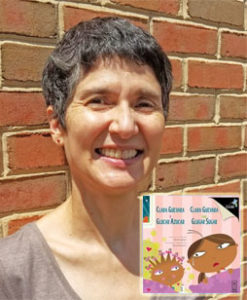 Youth Services librarian Mariela Aguilar’s bilingual book “
Youth Services librarian Mariela Aguilar’s bilingual book “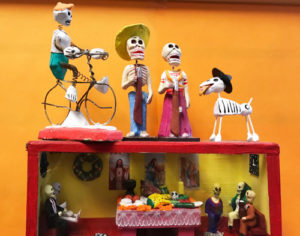 Exhibit: October 15 - November 30 at Central Library
Exhibit: October 15 - November 30 at Central Library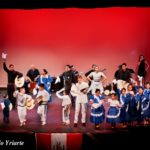 Sunday, Oct. 15, 2-6 p.m. at
Sunday, Oct. 15, 2-6 p.m. at 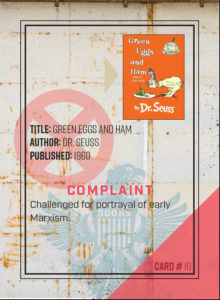 Different Banned Book Cards can be found at each Library location, as well as six secret locations in our community. We created 8 new cards for 2017, and you may see some 2016 cards as well.
Different Banned Book Cards can be found at each Library location, as well as six secret locations in our community. We created 8 new cards for 2017, and you may see some 2016 cards as well.